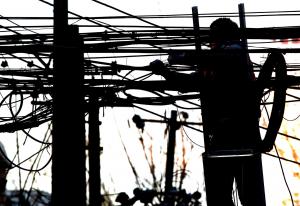North Korea Condemns China for Supporting ‘Denuclearization’
North Korea on Monday lashed out at South Korea, Japan, and even Pyongyang’s patron China for supporting the denuclearization of the Korean Peninsula at a summit in Seoul.
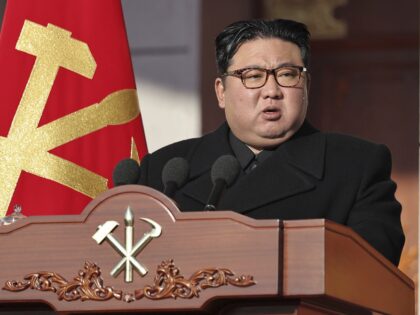
North Korea on Monday lashed out at South Korea, Japan, and even Pyongyang’s patron China for supporting the denuclearization of the Korean Peninsula at a summit in Seoul.

A Chinese television news anchor described Japan’s deadly earthquake as a “comeuppance” and “retribution” for releasing Fukushima wastewater.
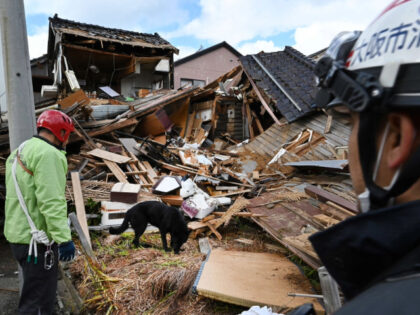
Japanese Prime Minister Kishida Fumio dined on Fukushima seafood to show the fish are safe after the release of treated wastewater.
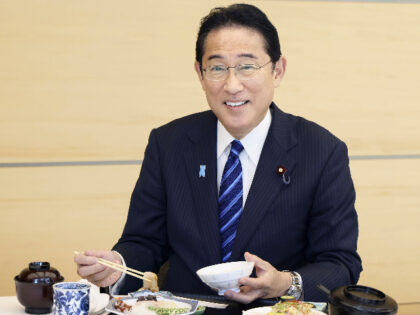
The Japanese Foreign Ministry and Prime Minister Kishida Fumio urged the Communist Party of China to protect Japanese citizens in the country from a wave of abuse against them as a result of Tokyo approving a plan to dump wastewater into the ocean from the damaged Fukushima Daiichi Nuclear Plant.
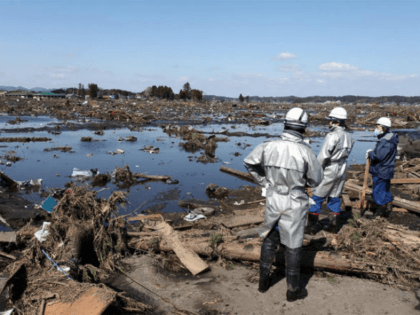
China’s state-run Global Times struggled to contain its editorial blood pressure on Sunday as it reported the leaders of South Korea and Japan will attend this week’s NATO summit in Vilnius, Lithuania, for the second year in a row.
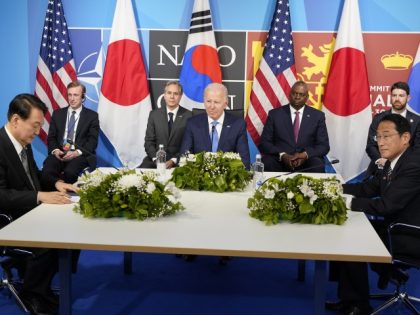
Fears among Japanese fishermen that the planned release of treated wastewater from the Fukushima nuclear reactor could ruin their industry grew over the weekend as Chinese consumers announced they will boycott Japanese seafood, while South Korea said it will be banned outright.
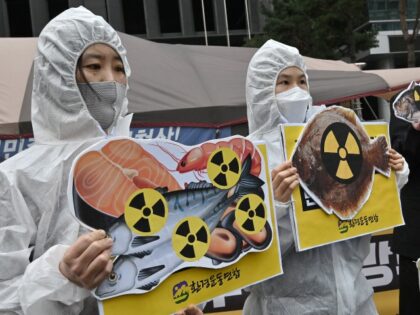
South Koreans are reportedly hoarding sea salt and other ocean products in nervous anticipation of Japan dumping over a million metric tons of treated radioactive water from the Fukushima nuclear plant into the ocean.
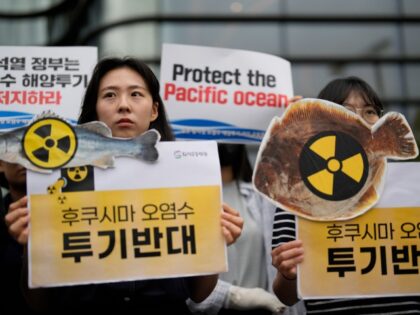
South Korean President Yoon Suk-yeol and Japanese Prime Minister Kishida Fumio met in Seoul over the weekend for their second summit in two months.
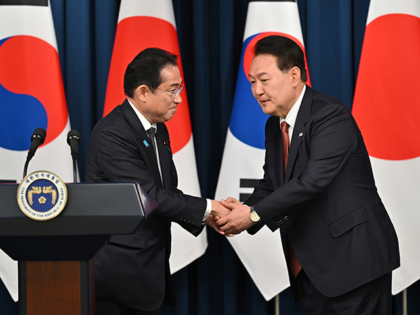
German lawmakers approved a plan to keep the country’s three remaining nuclear power plants until mid-April.
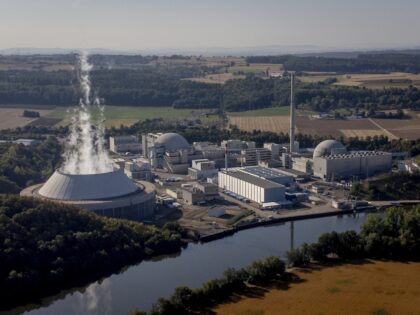
Japan’s Supreme Court this weekend ruled that Japan’s federal government should not be held liable for a nuclear plant meltdown in Fukushima in 2011 that followed shortly after an earthquake and tsunami hit the region in quick succession, Kyodo News reported.
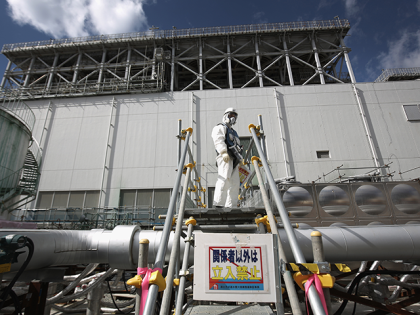
Nuclear power in the United States dates back to 1958, peaking at 104 operating nuclear reactors in 2012, but plants have been closing steadily since.
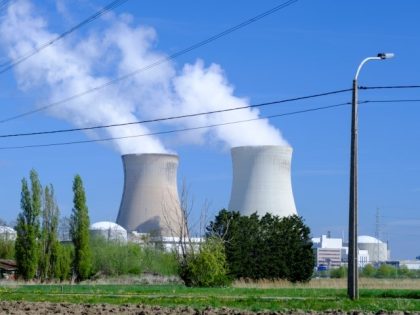
A 7.4-magnitude earthquake struck off the coast of northeastern Japan’s Fukushima prefecture late Wednesday causing damage and service disruptions to two nuclear power plants in Fukushima and killing three people across Japan, the Asahi Shimbun newspaper reported Thursday.
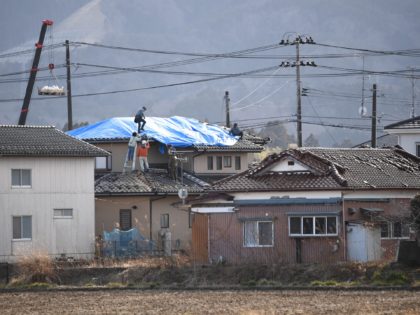
A powerful 7.3 magnitude earthquake rocked Japan Wednesday, leaving two million homes in and around Tokyo without power, per reports.
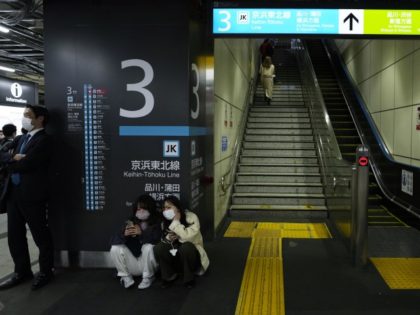
Tokyo cannot delay plans to release 1.25 million tons of contaminated water from the Fukushima nuclear plant into the Pacific Ocean starting in 2023 because such a setback would foil Japan’s goal of decommissioning Fukushima’s nuclear reactor, Japanese Prime Minister Kishida Fumio said on Sunday.
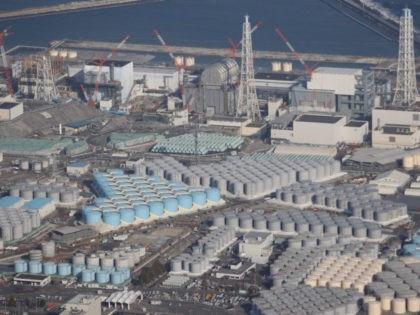
A senior government official in Japan apologized Tuesday, dramatically bowing to the public before a television camera, for the creation of a “mascot” meant to endear the public to tritium, a radioactive waste product.
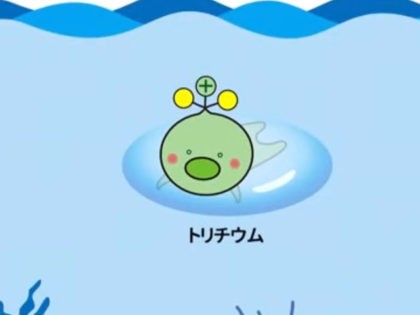
South Korean President Moon Jae-in ordered officials on Wednesday to explore filing an international court injunction against Japan over its recent decision to release 1.25 million tons of contaminated water from the destroyed Fukushima nuclear power plant into the Pacific Ocean.

The Chinese Foreign Ministry on Wednesday opposed Japan’s proposed release of contaminated wastewater from the Fukushima reactor and suggested shipping the radioactive waste to the United States instead.
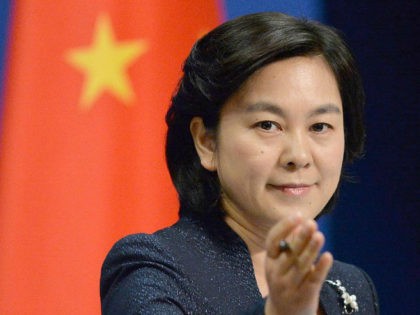
Japan on Tuesday approved plans to release 1.25 million tons of contaminated water from the destroyed Fukushima nuclear power plant into the Pacific Ocean.
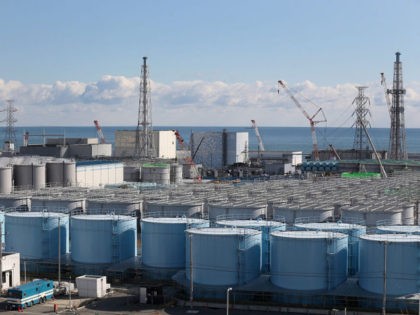
A 7.0 preliminary magnitude earthquake struck Japan off the coast of Ishinomaki, 65 miles from the 9.0 earthquake that struck Fukushima ten years ago.
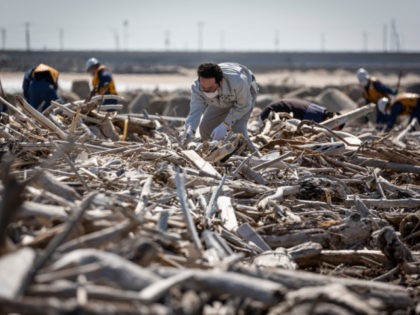
Nuclear regulators in Japan recently revealed the radiation levels found inside the damaged reactor buildings at the Fukushima No. 1 nuclear plant are “exceedingly high” and worse than previously thought, the Asahi Shimbun reported Wednesday.
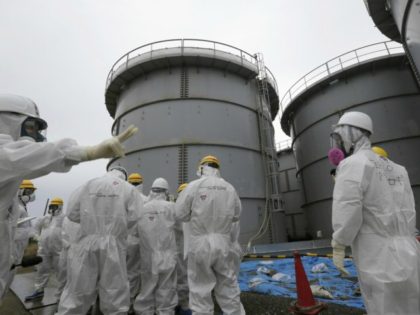
Japan announced on Wednesday that it has shut down all but one of its nine nuclear reactors for at least the next six weeks to comply with safety regulations requiring anti-terror protections for all of its nuclear facilities.

The Japanese government is moving forward with plans to release contaminated water from the Fukushima nuclear power plant into the Pacific Ocean, local media outlets reported on Friday.
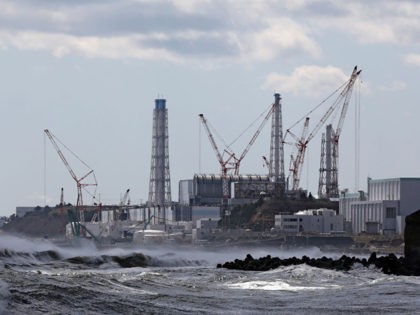
Outraged South Korean officials demanded answers this week after Japan revealed plans to discharge radioactive water from the Fukushima nuclear power plant into the ocean.

The late chief of the International Atomic Energy Agency (IAEA) Yukiya Amano was assassinated in a covert, joint operation by Israel and the U.S., a report distributed by the semi-official Iran Tasnim news agency claims.
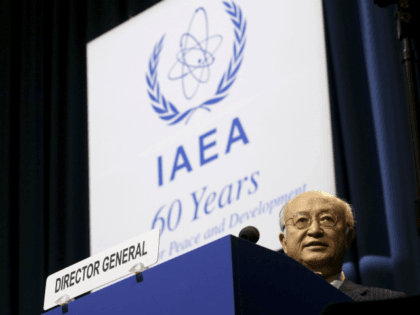
Tokyo Electric Power Co (TEPCO) workers began removing spent fuel rods from a cooling pool in the destroyed Fukushima Daiichi Nuclear Power Plant on Monday, the first major step in disposing of the highly radioactive material left in the plant after a tsunami ravaged it in 2011.
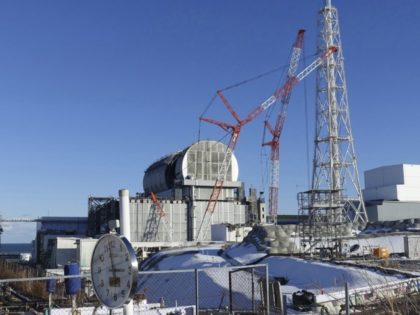
Thousands of residents of numerous prefectures of Japan, including the troubled Fukushima area, evacuated their homes Tuesday morning following a magnitude 7.4 earthquake and subsequent tsunami warnings.
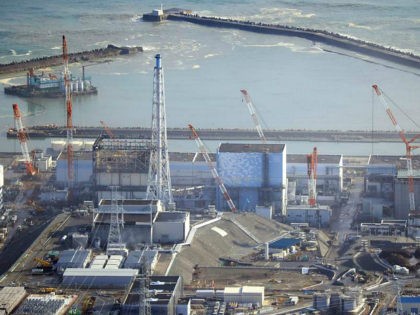
The National Weather Service issued a statement indicating there is no tsunami threat for the West Coast following the 7.3 magnitude earthquake that struck off Japan’s eastern coast, near Fukushima.
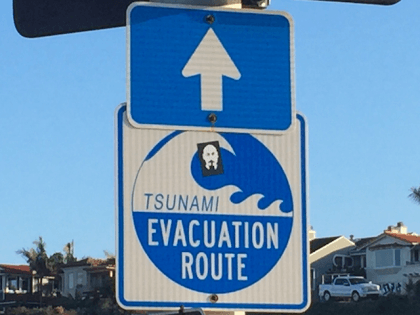
The San Onofre Nuclear Generating Station (SONGS) is about to be America’s first beachfront nuclear dump site, with ratepayers having already funded $4.4 billion to tear down the plant’s 3 nuclear power reactors.
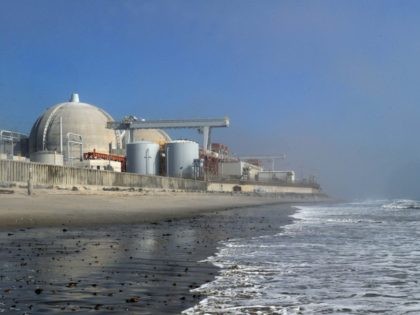
Europe’s suicidal green energy policies are killing at least 4o,000 people a year. That’s just the number estimated to have died in the winter of 2014 because they were unable to afford fuel bills driven artificially high by renewable energy tariffs.
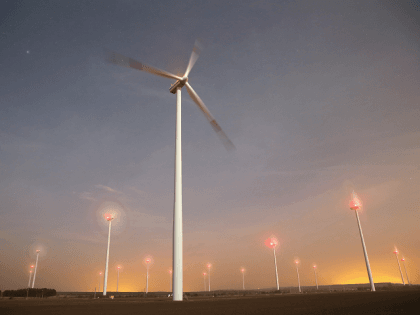
Given the option of leaving their hometowns or risking radiation poisoning five years ago, families living near the Fukushima radiation disaster are falling apart, facing divorce, suicide, and cancer. The breakdown of Fukushima families comes as Japan faces a dwindling population it continues to struggle to replenish.
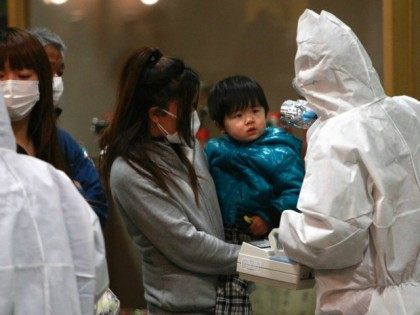
Greenpeace campaigners have jumped on the cancer diagnosis of a worker at the Fukushima nuclear power plant as proof that nuclear power isn’t safe, issuing statements describing his diagnosis as a “massive blow” to the industry. But cancer specialists have
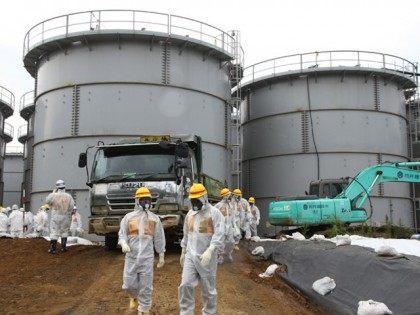
Japan on Tuesday acknowledged the first possible casualty from radiation at the wrecked Fukushima nuclear power plant, a worker who was diagnosed with cancer after the crisis broke out in 2011.

It will surprise no one but mutant daisies with two connected flowers and four stems have been found growing near the Fukushima nuclear plant in Japan.

Despite public protest, Japan is going nuclear—again.
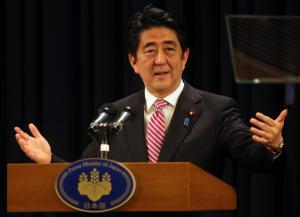
Rather than convincing a skeptical public that he did not benefit from the ARMZ-Uranium One “deal at the same time that [he was] writing checks to the Clinton Foundation,” a recent statement from the CEO and majority owner of U.S. Global Investors serves only to heighten interest in further disclosures about the company’s transactions.

Turkish authorities broke ground on Tuesday on the Akkuyu nuclear power plant, a project spearheaded by Russian developers that the Turkish government claims is indispensable to the nation’s energy independence.
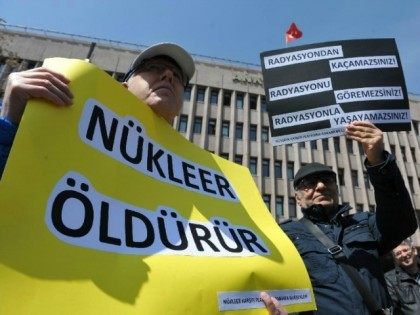
Greece threatens to confiscate German property as war reparations; South Ossetia discourages trips to Georgia for medical care; Karachi Pakistan fears ‘nuclear nightmare’ over planned nuclear reactors
